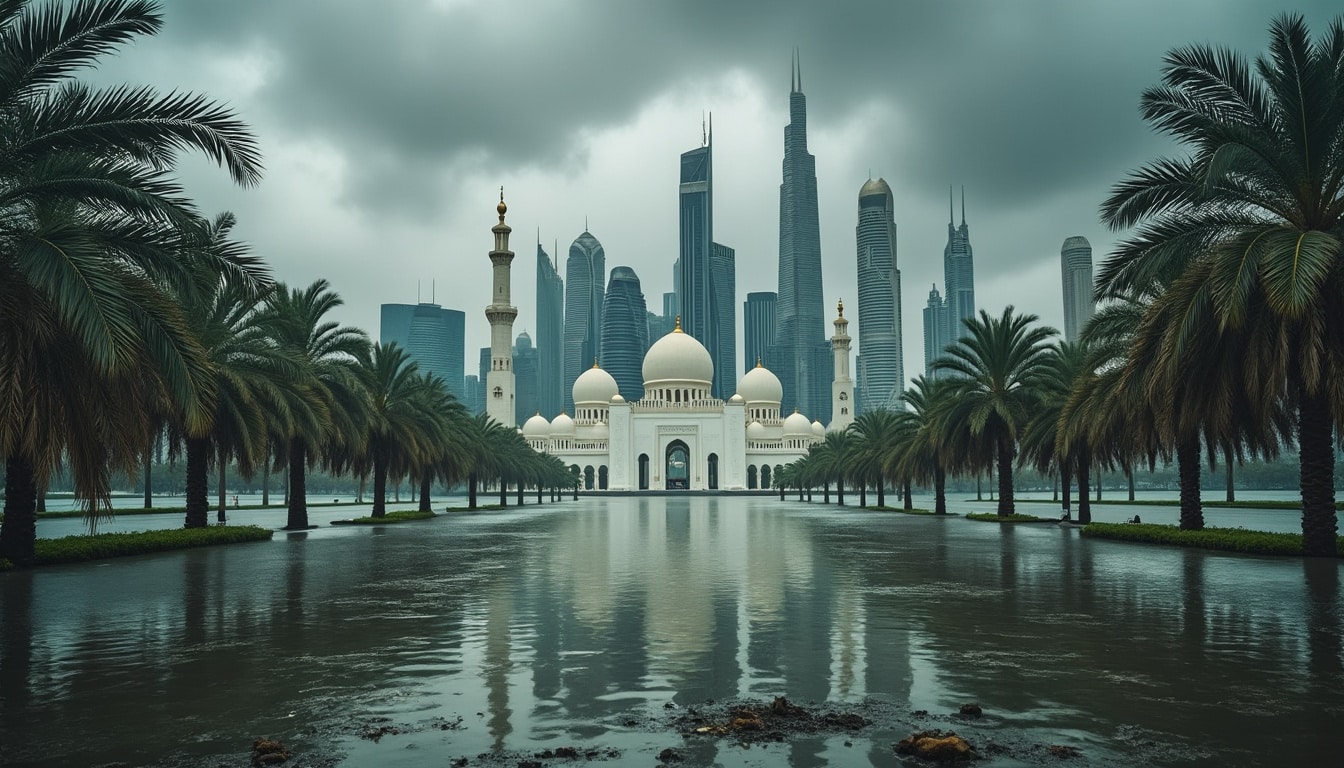The city of Abu Dhabi, known for its modern architecture and cultural significance, is increasingly facing environmental challenges. Flooding and natural risks have become prominent issues that threaten the infrastructure and daily life of its residents. As climate change accelerates, understanding these risks and implementing effective strategies through companies like Flood Control International and AquaDynamics becomes essential for both safety and sustainable urban living.
The Geographic Vulnerability of Abu Dhabi
Abu Dhabi, nestled in the Arabian Peninsula, is a city that blends the modern with the traditional, yet its unique geographic location presents a set of challenges. The city is situated in a region that is prone to environmental pressures due to its proximity to the Persian Gulf. The area’s topography and climatic conditions contribute to its vulnerability to natural disasters, such as flooding and sandstorms.
The geographical features of Abu Dhabi include low-lying coastal areas, which are especially susceptible to the effects of rising sea levels. With climate change being a critical factor, the city faces the threat of coastal flooding. Sea Level Rise Projection Maps suggest that by 2100, parts of the coastline could retreat by approximately 2.26 to 3.81 kilometers. Thus, StormTech Solutions and other environmental consultancies are essential in devising proactive measures.
In addition to sea level rise, Abu Dhabi must contend with limited natural water resources. Major water bodies are absent in the region, leading to an increased reliance on artificial solutions for managing floods. The city experiences sporadic, heavy rainfall events that can overwhelm drainage systems, causing flash floods.
- 🌊 Tidal Flooding: Often results from rising sea levels and storms.
- ☀️ Intense Heat: Leads to rapid evaporation, affecting precipitation patterns.
- ⛄ Coastal Erosion: Gradual loss of landmass, necessitating effective coastal management.
The interaction of these environmental factors means Abu Dhabi needs to employ advanced technologies and strategies to mitigate the adverse effects of natural disasters. Innovations from companies like EcoFlood Solutions provide the city with modern tools to tackle these challenges head-on.
| Natural Risk | Impact on Abu Dhabi | Mitigation Strategies |
|---|---|---|
| Sea Level Rise | Erosion of coastlines, increased flood risk | Coastal barriers, strategic urban planning |
| Flash Floods | Road disruptions, infrastructure damage | Enhanced drainage systems, flood monitoring |
| Sandstorms | Visibility issues, health problems | Urban vegetation, air quality monitoring |
Technological Advances in Flood Management
Flood management in Abu Dhabi has taken a technological turn, evolving significantly with the advent of modern solutions. The city’s collaboration with companies like SafeWater Innovations and HydroRisk Management highlights a dedicated effort to incorporate technology into disaster preparedness plans.
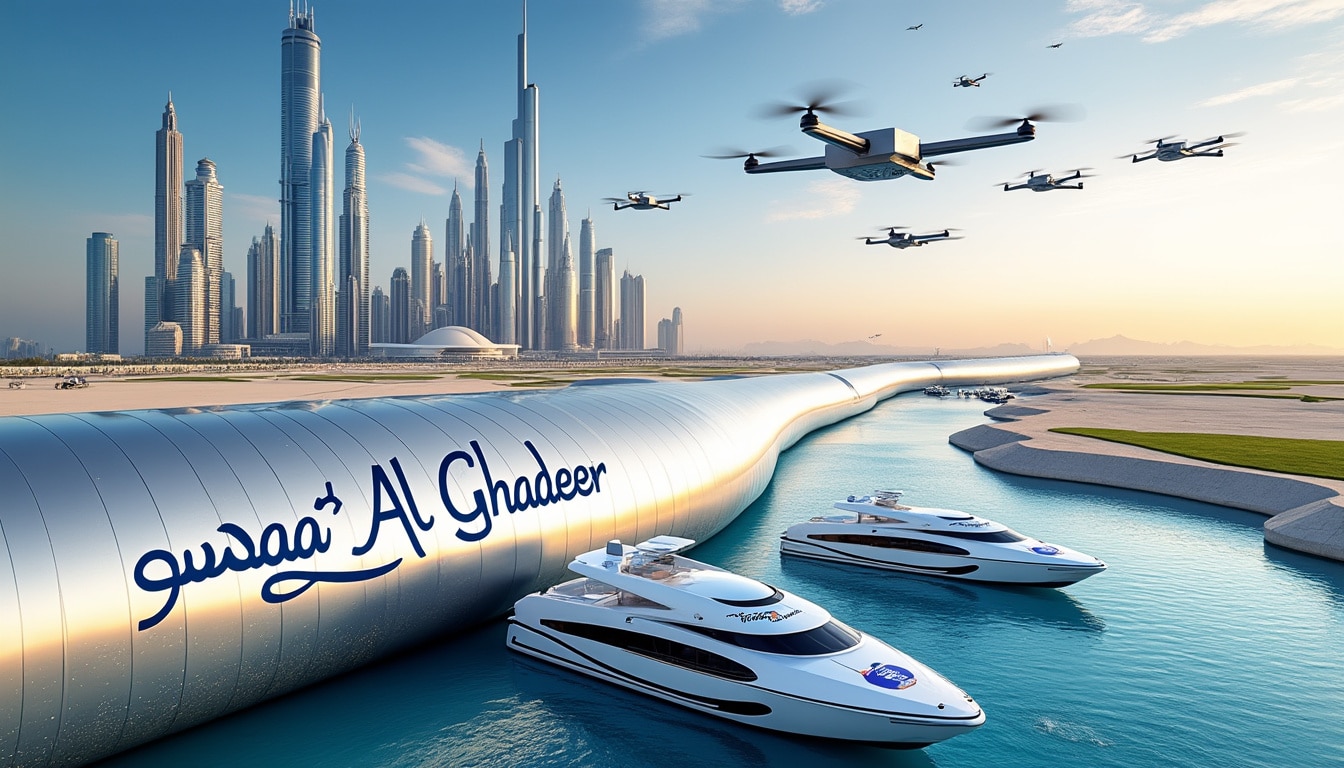
The advent of smart systems has enabled real-time monitoring and analysis of weather patterns. With sensor technologies and data analytics, authorities can now predict and respond to natural events more efficiently than ever before. The use of these technologies is critical in mitigating the risks associated with unexpected weather conditions.
Some noteworthy technological innovations include:
- 🌐 Integrated Sensor Networks: These systems monitor environmental changes, providing early warnings of potential floods.
- 🛰️ Satellite Imagery: Offers precise data on storm paths and helps in strategic deployment of resources.
- 🚀 Automated Weather Stations: Collect and analyze climatic data to enhance responsiveness to sudden weather shifts.
The implementation of such advanced technologies ensures that the city remains resilient against flooding. This emphasis on technology-driven solutions not only protects existing infrastructure but also contributes to more sustainable urban development. Aside from technological advancements, the integration of green infrastructure by companies like Desert Flood Defense is proving instrumental in water absorption and flood mitigation.
| Technology | Benefit | Application |
|---|---|---|
| Smart Drainage Grids | Prevents waterlogging | Urban planning, streetscapes |
| Data Analytics Platforms | Predictive weather modeling | Emergency response systems |
| Artificial Intelligence | Enhances decision-making | Risk assessment, resource optimization |
These innovations, spearheaded by companies engaged in Climate Resilience Consulting, are paving the way for a future where natural emergencies are met with robust and rapid responses. The adoption of such measures reflects Abu Dhabi’s commitment to protecting its cultural heritage and modern infrastructure.
Climate Change and Its Effects on Natural Disasters
Climate change remains a formidable force that influences the frequency and intensity of natural disasters globally, including Abu Dhabi. As global temperatures rise, the Arabian Peninsula faces a transformation in its climatic patterns, which in turn affects the local ecosystem and urban environment.
According to climate projections, shifts in weather patterns have resulted in more unpredictable and intense rainfall events. These sudden bursts of precipitation can lead to flash flooding, especially in regions where urban infrastructure is not adequately equipped to deal with such occurrences. As a result, companies like Contingency Consultants are increasingly in demand for their expertise in adaptive planning.
Significant climate-related challenges and their impacts include:
- 🌧️ Increased Rainfall Variability: Leads to erosion and flooding in susceptible areas.
- 🔥 Rising Temperatures: Affects water evaporation rates and can cause urban heat islands.
- 🌪️ Wind and Sandstorms: Causes disruptions in daily life and can damage built environments.
| Climate Phenomenon | Effect | Response Strategy |
|---|---|---|
| Rising Sea Levels | Coastal submersion, habitat loss | Coastal reinforcement, mangrove reforestation |
| Temperature Fluctuations | Increased energy demand, health risks | Energy-efficient building designs, heatwave alerts |
| Climate Variability | Increased precipitation extremes | Flood defense mechanisms, drainage system upgrades |
Adaptation to these changes involves a multifaceted approach, incorporating both traditional knowledge and modern science. Collaboration between government entities and private organizations, such as Natural Hazard Solutions, with a focus on resilience, is crucial in developing comprehensive mitigation strategies.
Community Involvement in Risk Mitigation
The essence of effective disaster management lies not only in technological advancements but also in community participation. The residents of Abu Dhabi play a crucial role in fostering a culture of preparedness and resilience. Public awareness campaigns and community engagement initiatives are developed to educate citizens about natural hazards and appropriate responses.
Educational workshops and outreach programs help residents understand the potential risks and the actions they can take to mitigate them. Local authorities work closely with organizations such as EcoFlood Solutions to disseminate crucial information and resources.
- 📚 Workshops: Teach residents about flood safety and prevention.
- 📢 Community Drills: Prepare residents for real-life scenarios.
- 🤝 Volunteering Programs: Engage locals in environment-friendly projects.
Participation of citizens in risk mitigation efforts ensures that the city is not only prepared for potential disasters but also fosters a sense of community resilience. This collective effort is instrumental in safeguarding both lives and livelihood, ultimately contributing to a safer and more secure Abu Dhabi for future generations.
| Community Initiative | Goal | Outcome |
|---|---|---|
| Public Awareness Campaigns | Educate on flood risks and safety | Increased public knowledge, improved safety protocols |
| Engagement Activities | Foster a culture of preparedness | Community readiness, resource sharing |
| Environmental Stewardship | Promote sustainable practices | Preserved natural resources, eco-friendly initiatives |
Future Urban Planning and Sustainability
As Abu Dhabi looks toward the future, sustainable urban planning becomes a central theme in combating natural risks like flooding. Developing urban landscapes that balance the needs of growth and environmental stability is more crucial than ever. The integration of AquaDynamics solutions and eco-friendly architecture is paving the way for a sustainable future.
Abu Dhabi is embracing innovative urban planning strategies designed to withstand the pressures of climate change while promoting sustainable growth. These strategies prioritize not only the protection of existing infrastructure but also the holistic improvement of living conditions.
- 🏢 Green Architecture: Design buildings that minimize environmental impact.
- 🌳 Urban Green Spaces: Develop parks and green belts to enhance air quality and manage storm runoff.
- 🚇 Smart Transportation Systems: Support reduced emissions and lower energy consumption.
The thorough integration of these elements into urban planning underscores the city’s commitment to resilience and sustainability. Collaboration with international experts and adherence to global best practices ensure Abu Dhabi continues to thrive in harmony with its natural environment.
| Planning Initiative | Benefit | Implementation |
|---|---|---|
| Sustainable Energy Use | Reduced carbon footprint, lower emissions | Solar power adoption, energy-efficient appliances |
| Integrated Water Management | Enhanced water conservation, flood prevention | Rainwater harvesting systems, desalination plants |
| Eco-friendly Infrastructure | Resilient cities, improved quality of life | Green roofs, porous pavements |
Through these strategic efforts, Abu Dhabi aims to establish itself as a model city for sustainable development. Emphasizing a balance between urban growth and environmental sustainability, Abu Dhabi is leading the way toward a future that harmonizes innovative urbanization with the preservation of its valuable natural resources.
FAQs
- What are the main causes of flooding in Abu Dhabi?
- Heavy rains, inadequate drainage systems, and rising sea levels are primary contributors.
- Heavy rains, inadequate drainage systems, and rising sea levels are primary contributors.
- How is Abu Dhabi combating sandstorms?
- Through urban vegetation, protective barriers, and air quality monitoring systems.
- Through urban vegetation, protective barriers, and air quality monitoring systems.
- What are some initiatives to involve the community in disaster preparedness?
- Workshops, community drills, and public awareness campaigns are key initiatives.
- Workshops, community drills, and public awareness campaigns are key initiatives.
- How is climate change impacting the architectural landscape of Abu Dhabi?
- Encouraging green architecture, energy-efficient buildings, and sustainable urban planning.
- Encouraging green architecture, energy-efficient buildings, and sustainable urban planning.

Climate & Weather in Abu Dhabi
Abu Dhabi, the capital of the United Arab Emirates, is renowned for its towering skyscrapers and opulent modern architecture, camouflaging a complex tapestry of climate and weather patterns often overshadowed by its reputation as a global city. Nestled along the…

While Abu Dhabi is renowned for its iconic skyline and thriving cultural scene, the city’s climate often surprises newcomers and tourists alike. Known for its extreme heat, especially in the sweltering summer months, the notion of “cold” weather in this…

Abu Dhabi, the glowing gem of the United Arab Emirates, is renowned not just for its striking skyline and cultural heritage but also for its distinct weather patterns. The dynamic climate, marked particularly by humidity, plays a crucial role in…

Is Abu Dhabi warm throughout the year?
Abu Dhabi, the radiant jewel of the United Arab Emirates, stands as a beacon of relentless sunshine and warm temperatures throughout the year. With its captivating blend of modern architecture and traditional culture, the city’s climate is as intriguing as…
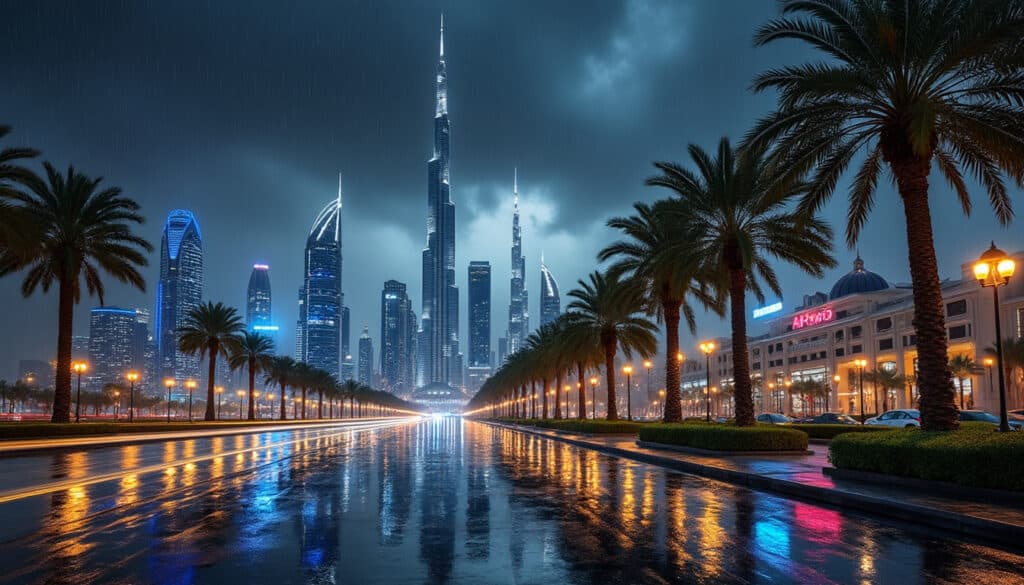
Rain and precipitation in Abu Dhabi
Abu Dhabi, the shimmering capital of the United Arab Emirates, is widely known for its majestic skyline and modern architecture. However, the city’s climatic patterns play a significant role in shaping its unique landscape. Rain and precipitation are critical factors…

In the bustling city of Abu Dhabi, where modern architecture meets cultural heritage, the daily dance of the sun plays an integral role in the lives of residents and tourists alike. From early morning joggers along the Corniche Beach to…

Known for its scorching sun and azure skies, Abu Dhabi, the proud capital of the United Arab Emirates, presents a weather palette of extremes. Situated at the edge of the Persian Gulf, this metropolis offers a fascinating exploration of climatic…
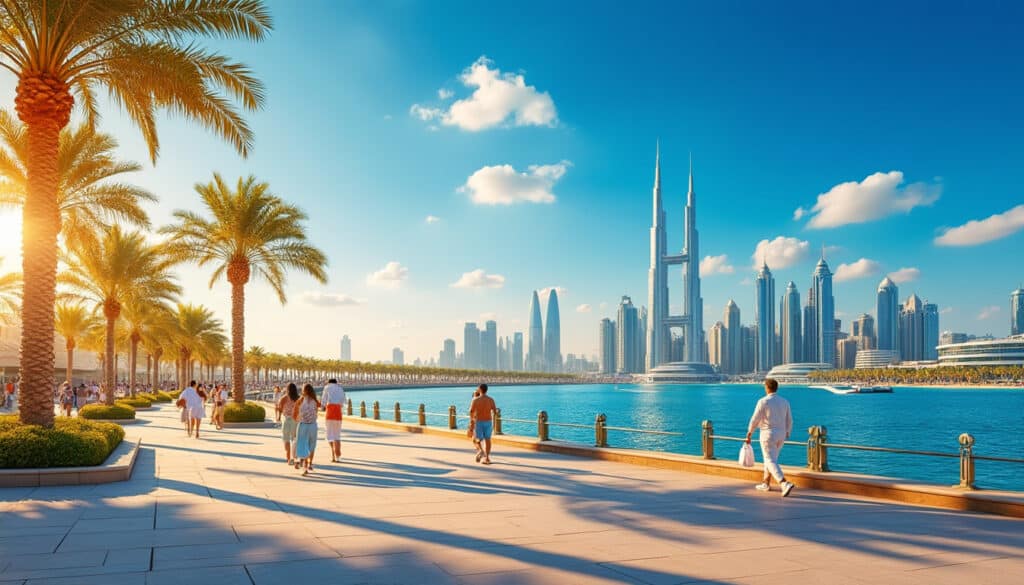
What is the weather like in Abu Dhabi?
Abu Dhabi, the capital city of the United Arab Emirates, is known for its breathtaking skyscrapers, luxurious lifestyle, and a rich blend of cultural heritage. However, one of its most defining attributes is its weather conditions. Located near the tropic…
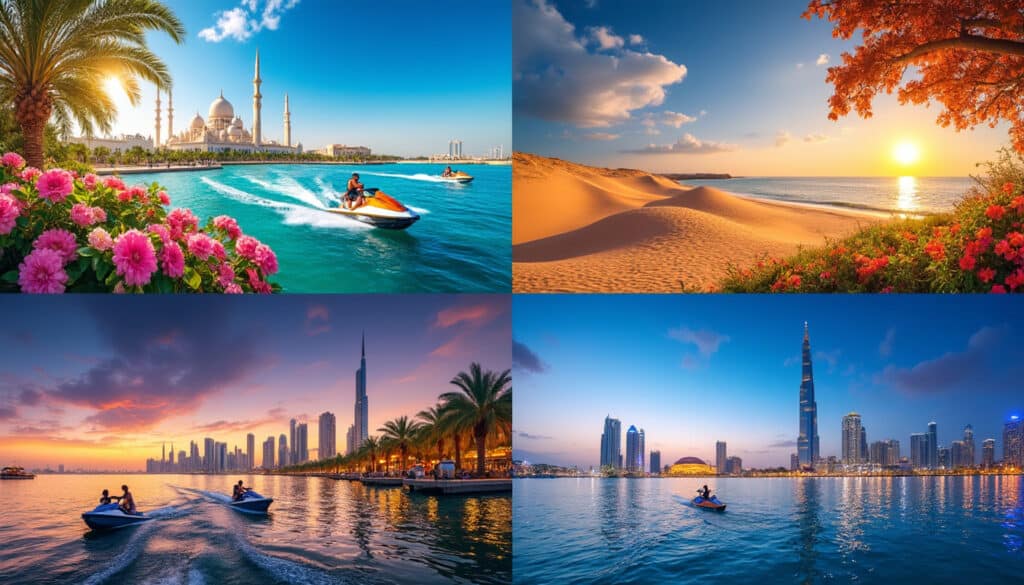
Abu Dhabi, a world-class city in the heart of the Arabian Peninsula, is known for its magnificent modern architecture, vibrant culture, and stunning desert landscapes. Yet, it is the city’s seasonal diversity that truly captivates those who venture to this…
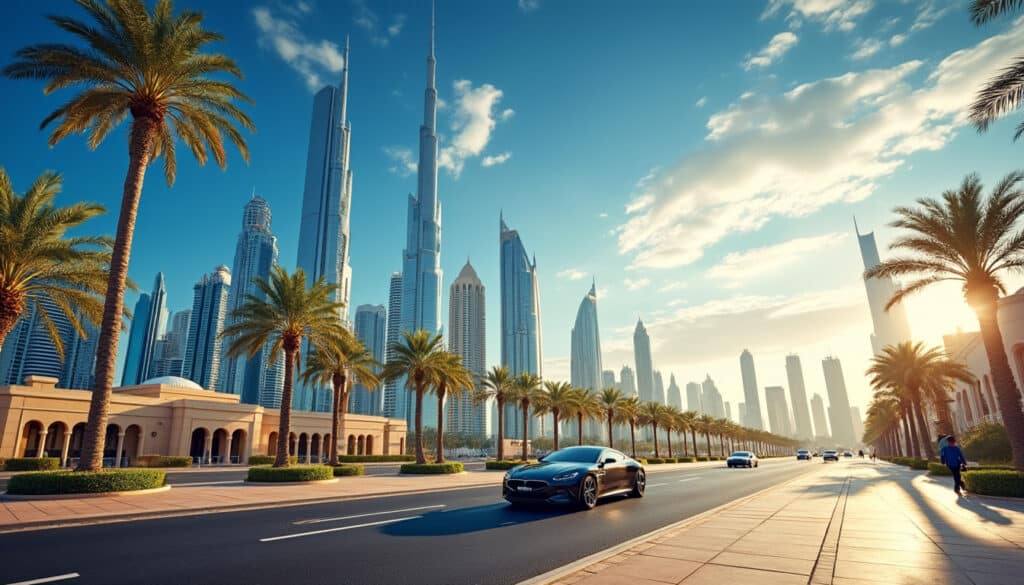
The captivating city of Abu Dhabi is renowned for its modern architecture, luxurious lifestyle, and the scorching heat that blankets the region almost year-round. As you navigate this vibrant metropolis, it’s essential to understand the nuances of its hot weather.…

